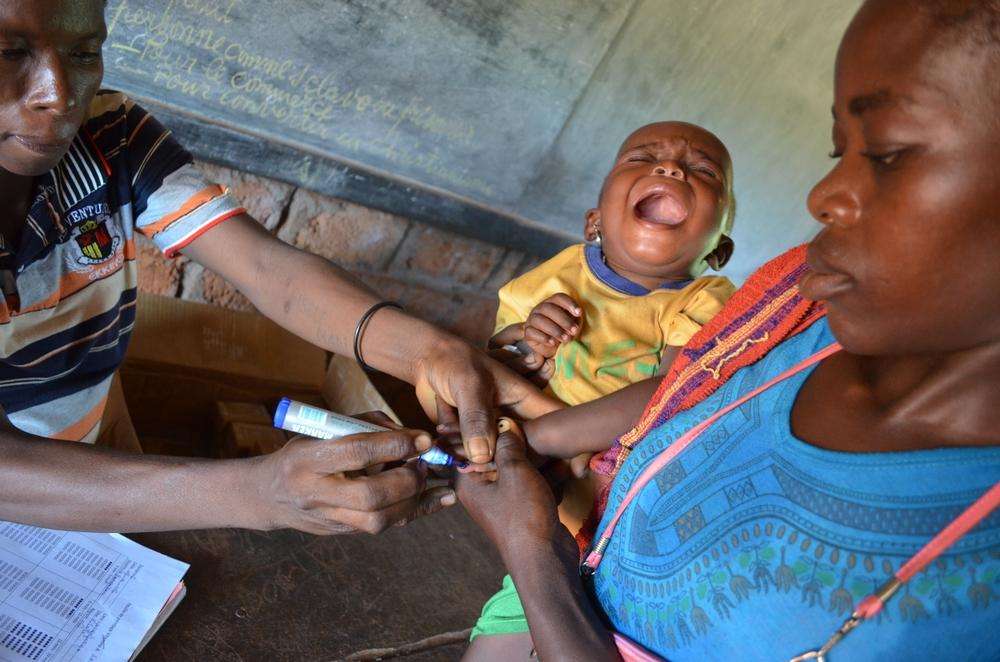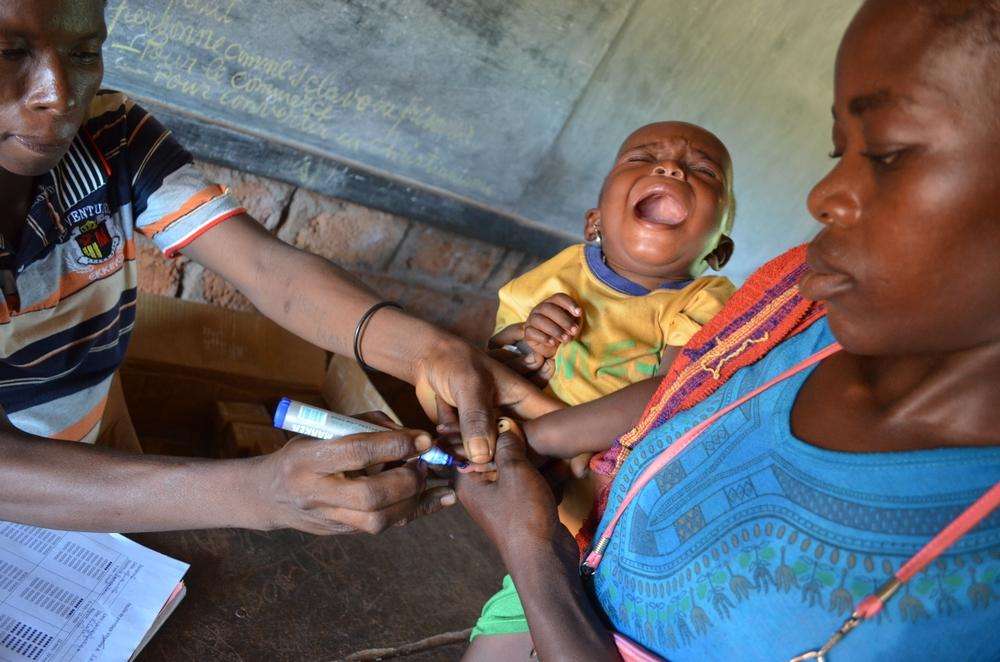Crowds draw into the local schools and churches of little villages, nestled against lush forests. Mothers wait with their children, lined up on wooden benches. Everyone is quiet—surprisingly enough for a long line of people made up mostly of the under-6-years-old crowd. But the closer the children get to the nurses, the more their curiosity morphs into terror.
The nurses have a process: open the mouth for the oral polio vaccine, prepare one leg for the pentavalent, the other one for the pneumonia vaccine, and, "Jab, jab."
Then they’re done, and the children are left open-eyed, cheeks wet from tears. Among the screams, some mothers laugh. It’s hard to see your kids cry, but they know it’s better to struggle with a healthy child trying to escape the needle, than to have to carry a limp, feverish child for a few hours walk to the nearest affordable clinic instead.
“If my children get sick, I don’t know what to do apart from giving them paracetamol”, said Carole Mbamanza. “Here in my village’s health center, we have to pay four to six dollars for a consultation and I can’t afford it. So instead, I have to go to Yongofongo health center [supported by Doctors Without Borders/Médecins Sans Frontières (MSF)] where it is free. But it’s not easy to walk two hours, carrying a sick child!”
This is a reality that many parents deal with in Central African Republic (CAR). Health centers are few and far between, poorly stocked and staffed, and their limited services are unaffordable for most. In CAR, even more so than in the rest of the world, one had better not fall sick. Even before the latest crisis, vaccination coverage was already very low at barely an estimated 40 percent, which meant high childhood mortality due to easily preventable diseases. The 2013–2014 conflict that killed thousands and forced up to a quarter of the entire population to flee their homes, further disrupted an already barely functioning health system. All state functions ground to a halt, including routine vaccination programs, making an already bad situation even more dire.
In Bangassou, the main city of Mbomou province, respiratory infections are the third cause of mortality among children, after malaria and neonatal deaths. But during the upcoming dry season, when malaria cases wane, respiratory illnesses jump to the top as the deadliest disease for the youngest. To boost children’s protection, MSF organized catch-up vaccination campaigns in most of its 17 projects across the country for children under six-years-old who, for the most part, did not get any routine shots. Twenty-thousand children in Bangassou, and over 100,000 across the country, received vaccinations against nine potentially deadly diseases, including pneumonia.
Around the world, pneumonia is the number one killer of children under age five. It can be a parent’s worst nightmare, which Blanche Foutcho, a mother from CAR, knows all too well, “My 9-month old son, Jésuré, was sick two months ago. He started breathing strangely, very quickly. We were very worried, and we walked two hours to reach Yongofongo where [health care is] free. From there, we were transferred to Bangassou, and Jésuré was hospitalized for a week. Now he’s doing better, but he still gasps for air when he cries,” she said.
When a country's health facilities collapse due to conflict, humanitarian organizations can provide some relief by responding to healthcare needs. We can help parents, like Blanche, avoid this nightmare by providing access to the pneumonia vaccine. But vaccinating kids living in crisis-affected countries can be challenging when the price of the pneumonia vaccine is too high for governments and humanitarian organizations to afford.
So who will help to protect the millions of kids caught in conflict?
Let's not let our children go unprotected. We need to give all kids A Fair Shot. We need Pfizer & GSK to lower the price of the pneumonia vaccine to $5/child for all developing countries and all humanitarian organizations.
Learn more about A Fair Shot campaign





